Latest Releases
Find our latest releases below. After searching, you can view the most recent releases by clearing the search.
Browse experts on:

Yes, kids under 13 are on social media. New nationwide study examines the effects.
February 5, 2026
Northwestern pediatric mental health and well-being expert will virtually present findings Feb. 11 from her study of more than 3,000 children under age 13 about their social media use.
* Media Advisory
* Media Advisory
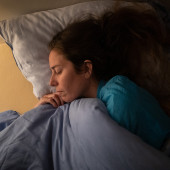
Dream engineering can help solve ‘puzzling’ questions
February 4, 2026
A new study by neuroscientists at Northwestern University validates the possibility of influencing dreams and offers a crucial step to support the theory that dreams in REM sleep — the rapid eye movement phase of sleep in which lucid dreaming can occur — may be especially conducive to helping individuals come up with creative solutions to a problem.
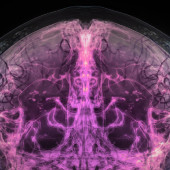
New institute envisions future where our brains last as long as our bodies
February 2, 2026
Northwestern University has launched the Simpson Querrey Brain Health Institute (SQ-Brain), made possible by nearly $25 million in philanthropic funding from University Trustee Kimberly K. Querrey (’22, ’23 P).

Zachary Clopton named dean of Northwestern Pritzker School of Law
January 29, 2026
Daniel Hale Williams Professor of Law Zachary D. Clopton has been appointed dean of Northwestern Pritzker School of Law, effective Feb. 1. Clopton succeeds Hari Osofsky as the permanent dean after six months in the interim role.

As social media trials begin, experts urge regulation of tech architecture, not youth access
January 28, 2026
As a series of landmark social media trials kick off this week between tech giants Meta, Snap, TikTok and YouTube, and parents alleging the platforms are addictive and harmful, Northwestern University psychology and law experts are available for interviews with the media.
* Media Advisory
* Media Advisory

Celebration of Yoko Ono among events to be presented by Northwestern’s Institute for New Music
January 28, 2026
This winter, the Institute for New Music at Northwestern University’s Henry and Leigh Bienen School of Music brings students and audiences into direct conversation with some of the most influential figures shaping contemporary music and sound art. Over two days in February, the Bienen School’s Contemporary Music Ensemble presents a program honoring the profound artistic dialogue and enduring friendship between Yoko Ono and John Cage — two visionaries whose radical ideas reshaped the boundaries of music, performance and conceptual art.
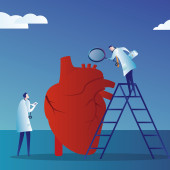
Men’s heart attack risk climbs by mid-30s, years before women
January 27, 2026
Men begin developing coronary heart disease — which can lead to heart attacks — years earlier than women, with differences emerging as early as the mid-30s, according to a large, long-term study led by Northwestern Medicine.
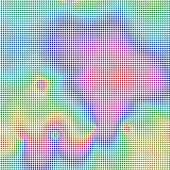
A hidden rhythm brings microscopic particles into unison
January 26, 2026
Using computational modeling, the team found the particles influence each other’s motion by stirring their shared medium. The results suggest that in biological systems, too, the environment itself — whether fluid, tissue or air — may play a crucial role in orchestrating collective rhythms.
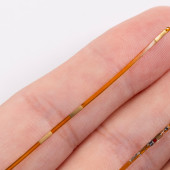
First-of-its-kind probe monitors fetal health in utero during surgery
January 26, 2026
New soft, flexible device fits through an operative port already used for fetoscopic surgery to track heart rate, blood oxygen levels and temperature. Device could sense fetal distress sooner, enabling earlier interventions to prevent complications.

Wood burning in homes drives dangerous air pollution in winter
January 23, 2026
Only 2% of U.S. homes rely on wood as their primary heating source, but residential wood burning accounts for 22% of fine particulate matter in winter air.